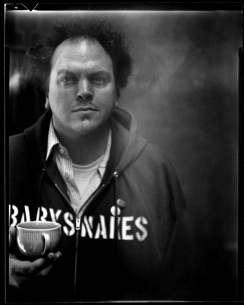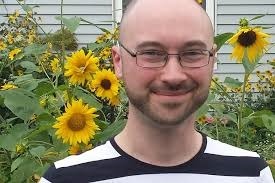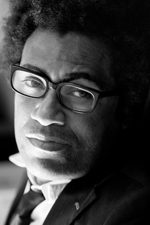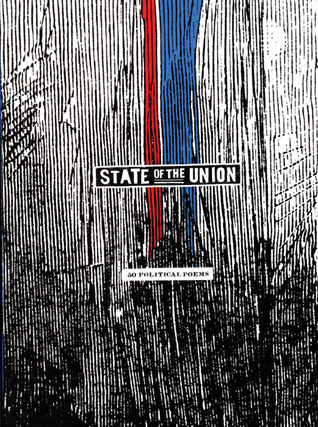
From rough optimism to sharp criticism, fifty American poets present new work dissecting the current political climate in America. Wide-ranging writers bring their bold voices to this collection, including Eileen Myles, Matthew Rohrer, Rebecca Wolff, Terrance Hayes, Joe Wenderoth, and Tao Lin. “Walking by Hope Street” Look at the landscape, A lot of damage, no? But we are here together, And of needing me, here The world needs me, We are too alone. And what of our orange daylight, Growing darker as the lamplit Trees grow dark. There Is not enough to say. But our hands, our gentle Frozen hands sift through Things like numbers out of breath. It will all be okay, I promise. Promise who? Promise the faded land. —Noelle Kocot “Literary Agency” Coretta Scott King has died, the other day. Dream unrealized. Lost and found, lost again, bathos my motivation my Elysian dream. The place inside untutored, incorruptible, without relation. That’s something to hold onto, and uncontingency dressing the wound. That’s sad and just “what it is.” It is what it is. That’s what I say when I can’t bear the news. —Rebecca Wolff
Authors

Lucille Clifton was an American poet, writer, and educator from New York. Common topics in her poetry include the celebration of her African American heritage, and feminist themes, with particular emphasis on the female body. She was the first person in her family to finish high school and attend college. She started Howard University on scholarship as a drama major but lost the scholarship two years later. Thus began her writing career. Good Times, her first book of poems, was published in 1969. She has since been nominated twice for the Pulitzer Prize for Poetry and has been honored as Maryland's Poet Laureate. Ms. Clifton's foray into writing for children began with Some of the Days of Everett Anderson, published in 1970. In 1976, Generations: A Memoir was published. In 2000, she won the National Book Award for Poetry, for her work "Poems Seven". From 1985 to 1989, Clifton was a professor of literature and creative writing at the University of California, Santa Cruz. She was Distinguished Professor of Humanities at St. Mary's College of Maryland. From 1995 to 1999, she was a visiting professor at Columbia University. In 2006, she was a fellow at Dartmouth College. Clifton received the Robert Frost Medal for lifetime achievement posthumously, from the Poetry Society of America.

Born and raised in Pittsburgh, Ed Roberson studied painting in his youth and was educated at the University of Pittsburgh. His extensive travels inform his work, which is also influenced by spirituals and the blues, and by visual art, such as the mixed-media collages of Romare Bearden. Poet and critic Michael Palmer has called Roberson “one of the most deeply innovative and critically acute voices of our time.” Roberson is the author of numerous collections of poetry, including Asked What Has Changed (2021); MPH + Selected Motorcycle Poems (2021); the chapbook Closest Pronunciation (2013); To See the Earth Before the End of the World (2010), which was a runner up for the Los Angeles Times Poetry Award; The New Wing of the Labyrinth (2009); City Eclogue (2006); Atmosphere Conditions (1999), which was chosen by Nathaniel Mackey for the National Poetry Series and was a finalist for the Lenore Marshall Poetry Prize; Just In: Word of Navigational Change: New and Selected Work (1998); and Voices Cast Out to Talk Us In (1995), which won the Iowa Poetry Prize. His earlier collections include Etai-Eken (1975) and When Thy King is a Boy (1970). Words and phrases in Roberson’s experimental poetry actively resist parsing, using instead what Mackey has called “double-jointed syntax” to explore and bend themes of race, history, and culture. “I’m not creating a new language. I’m just trying to un-White-Out the one we’ve got,” said Roberson in a 2006 interview with Chicago Postmodern Poetry. Roberson’s honors include the Ruth Lilly Poetry Prize in 2016, the Lila Wallace Writers’ Award, the Poetry Society of America’s Shelley Award, and the 2016 PEN/Voelcker Award for Poetry. His work has been included in Best American Poetry. He lives in Chicago, where he has taught at the University of Chicago, Columbia College, and Northwestern University.
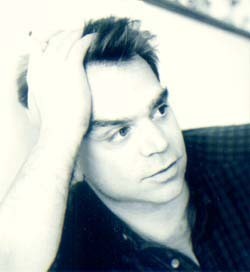
Educated at New York University, Brown University, and the State University of New York at Buffalo, poet Peter Gizzi is the author of several collections of poetry, including Threshold Songs (2011), The Outernationale (2007), and Artificial Heart (1998). Gizzi uses both narrative and lyrical gestures to engage and question distance and light in his search for the unmapped. Reflecting on the question of whether his work is narrative or lyric, Gizzi stated in an interview with Poetry Daily, “I think I am a narrative poet—I’m just narrating my bewilderment as a citizen.” (Source: Peter Gizzi @ The Poetry Foundation)

Nick Flynn is an American poet, memoirist, and playwright. His most famous book is a memoir, Another Bullshit Night in Suck City. He has published two collections of poetry: Blind Huber, and Some Ether, which won the inaugural PEN/Joyce Osterweil Award and was a finalist for the Los Angeles Times Book Prize. Further honors include a 2001 Guggenheim Fellowship, a 2001 Amy Lowell Poetry Travelling Scholarship, and the 1999 Discovery/The Nation Award for his poem, Bag of Mice, about his mother's suicide. Flynn earned an Master of Fine Arts in creative writing from New York University and teaches part-time at the University of Houston Creative Writing Program. He used to teach at Columbia University, where he was a poet and educator. He lives in New York and is married to the actress, Lili Taylor, with whom he has a daughter, Maeve. Librarian Note: There is more than one author in the GoodReads database with this name. See this thread for more information.
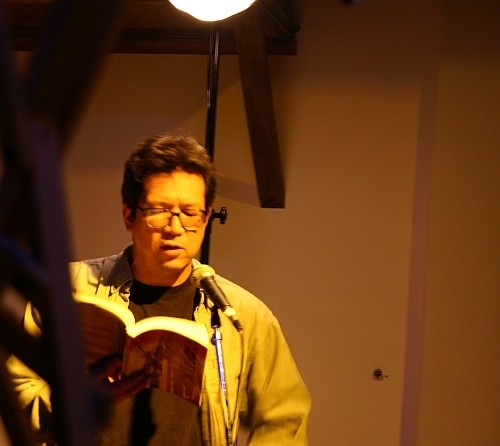
Sesshu Foster is an American poet. He has taught composition and literature in East LA since 1985, and has also taught at the University of Iowa, the California Institute of the Arts, the University of California, Santa Cruz and the Jack Kerouac School's Summer Writing Program. He was in residence at California State University, Los Angeles. Awards: 2010 American Book Award for World Ball Notebook 2009 Asian American Literary Award for Poetry for World Ball Notebook 2005 Believer Book Award for Atomik Aztex 1990 American Book Award for Invocation LA: Urban Multicultural Poetry Finalist for a PEN Center West Poetry Prize, for City Terrace Field Manual Finalist for the Paterson Poetry Prize for City Terrace Field Manual

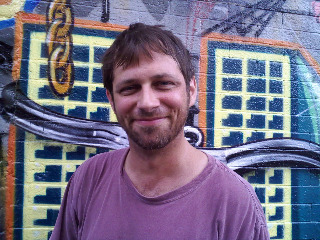
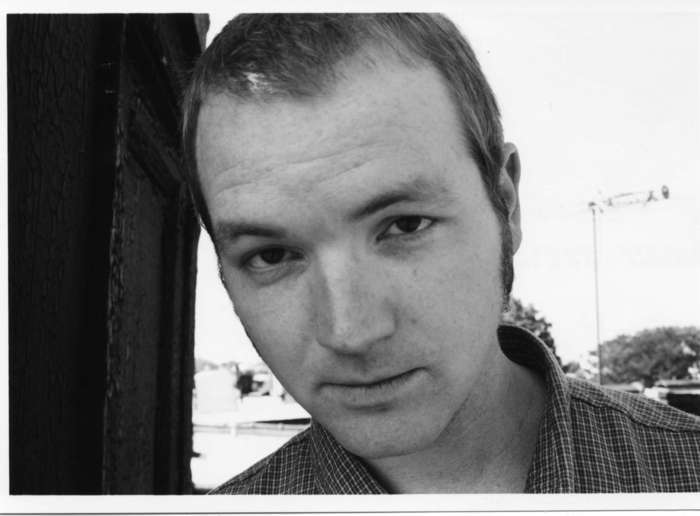
Matthew Rohrer is the author of Destroyer and Preserver (forthcoming from Wave Books in 2011), A Plate of Chicken (Ugly Duckling Presse, 2009), Rise Up (Wave Books, 2007) and A Green Light (Verse Press, 2004), which was shortlisted for the 2005 Griffin Poetry Prize. He is also the author of Satellite (Verse Press, 2001), and co-author, with Joshua Beckman, of Nice Hat. Thanks. (Verse Press, 2002), and the audio CD Adventures While Preaching the Gospel of Beauty. He has appeared on NPR's "All Things Considered" and "The Next Big Thing." His first book, A Hummock in the Malookas was selected for the National Poetry Series by Mary Oliver in 1994. He lives in Brooklyn, New York, and teaches in the undergraduate writing program at NYU. For more information on this author, go to: http://www.wavepoetry.com/authors/32-...
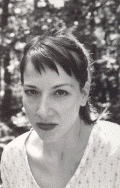

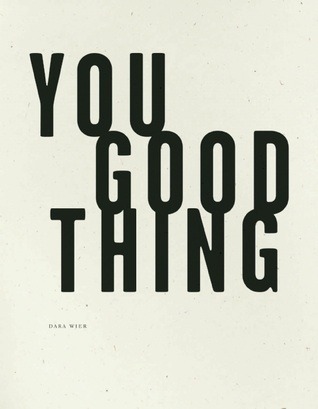
Dara Wier's books include You Good Thing (Wave Books 2013), Selected Poems (Wave Books 2011), Remnants of Hannah (Wave Books 2006), Hat On a Pond (Verse Press 2002), and Voyages in English (Carnegie Mellon 2001). Reverse Rapture (Verse Press 2005), a book length poem in nine-line stanzas in nine-stanza pieces, was selected by Stephen Rodefer for the 2006 Poetry Center Book Award from The American Poetry Archives. Among her works are the limited editions A Civilian's Journal of the War Years (Song Cave), (X In Fix) in Rain Taxi's Brainstorm Series, Fly on the Wall (Oat City Press), and The Lost Epic, co-written with James Tate (Waiting for Godot Books in 1999). Her work has been supported by fellowships and awards from the Guggenheim Foundation, the National Endowment for the Arts, the Massachusetts Cultural Council, and the American Poetry Review. In 2005 she was the Rubin Distinguished Chairholder at Hollins University in Roanoke, Virginia. Her work has appears in American Letters & Commentary, American Poetry Review, Boston Review, Conduit, Denver Quarterly, Fence, Fou, Harvard Review, Iowa Review, jubilat, Maggy, Make, Matter, New American Writing, slope, Volt, Norton's Hybrid Poetry, Best American Poetry, The Pushcart Prize Anthology and elsewhere. She directs the MFA program for Poets and Writers at the University of Massachusetts Amherst and co-directs the University of Massachusetts' Juniper Initiative for Literary Arts and Action and The Juniper Summer Writing Institute. Her editing work includes publishing limited edition chapbooks and broadsides with Factory Hollow Press, a part of Flying Object, an arts non-profit in Hadley, Massachusetts. Audio, interviews, and reviews can be found in a website section about Wier's work at Wave Books. Read "A Stick, A Cup, A Bowl, A Comb," in Poetry Daily, "Peach Farm," in Jubilat, and more poems on poetserv.org.. Her monthly column, Inside Undivided, about chance, fate, intention & context is at Flying Object's site. For more information on this author, go to: http://www.wavepoetry.com/authors/47-...
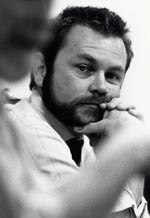
In 1952, Alberto Alvaro Ríos was born on the American side of the city of Nogales, Arizona, on the Mexican border. He received a Bachelor of Arts from the University of Arizona in 1974 and a MFA in Creative Writing from the same institution in 1979. He is the author of several collections of poetry, including Dangerous Shirt (Copper Canyon Press, 2009); The Theater of Night (2007); The Smallest Muscle in the Human Body (2002), which was nominated for the National Book Award; Teodora Luna's Two Kisses(1990); The Lime Orchard Woman (1988); Five Indiscretions (1985); and Whispering to Fool the Wind (1982), which won the 1981 Walt Whitman Award, selected by Donald Justice. Other books by Ríos include Capirotada: A Nogales Memoir (University of New Mexico Press, 1999), The Curtain of Trees: Stories (1999), Pig Cookies and Other Stories (1995), and The Iguana Killer: Twelve Stories of the Heart (1984), which won the Western States Book Award. Ríos' poetry has been set to music in a cantata by James DeMars called "Toto's Say," and on an EMI release, "Away from Home." He was also featured in the documentary Birthwrite: Growing Up Hispanic. His work has been included in more than ninety major national and international literary anthologies, including the Norton Anthology of Modern Poetry. "Alberto Ríos is a poet of reverie and magical perception," wrote the judges of the 2002 National Book Awards, "and of the threshold between this world and the world just beyond." He holds numerous awards, including six Pushcart Prizes in both poetry and fiction, the Arizona Governor's Arts Award and fellowships from the Guggenheim Foundation and the National Endowment for the Arts. Since 1994 he has been Regents Professor of English at Arizona State University, where he has taught since 1982. He lives in Chandler, Arizona.
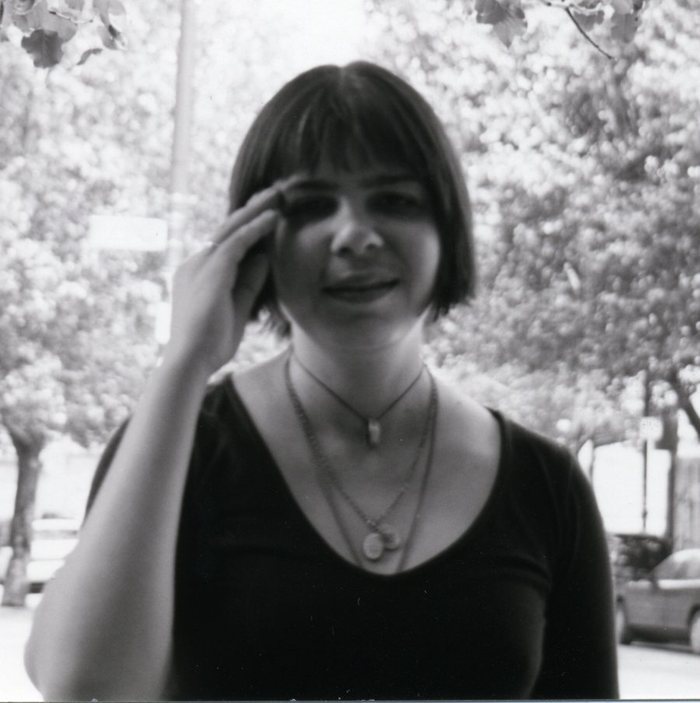
Noelle Kocot is the author of four collections of poetry, with a limited-edition discography forthcoming in 2010, and a fifth full-length (The Bigger World) forthcoming in 2011. Her most recent full-length collections include Sunny Wednesday (Wave Books, 2009) and Poem for the End of Time and Other Poems (Wave Books, 2006). She is also the author of 4 and The Raving Fortune (both from Four Way Books). She is the recipient of awards from the National Endowment for the Arts, the Academy of American Poets, The Fund for Poetry and the American Poetry Review. She currently lives in New Jersey. For more information on this author, go to: http://www.wavepoetry.com/authors/25-...
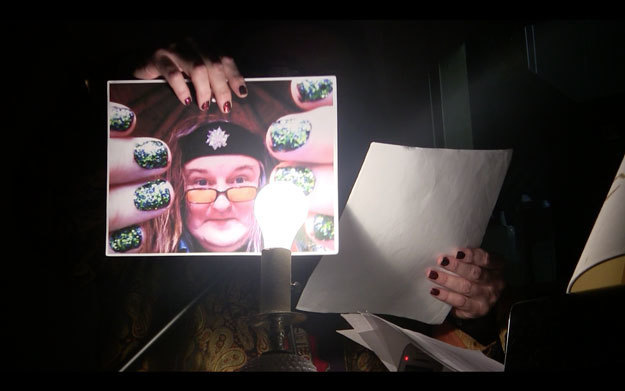
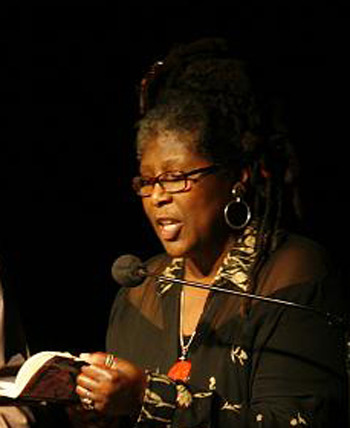
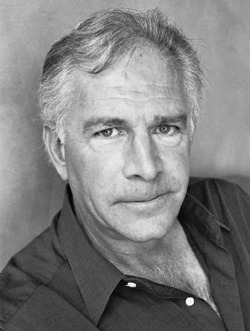
Michael Palmer is a poet associated with the Language Poetry movement; he is also a translator and has worked on art with painters and dancers. Librarian Note: There is more than one author in the GoodReads database with this name. See this thread for more information.


Born in the Mojave Desert, Forrest Gander grew up in Virginia and spent significant periods in San Francisco, Dolores Hidalgo (Mexico), and Eureka Springs, Arkansas before moving to Rhode Island. He holds degrees in literature and in geology, a subject that recurs in his writing and for which his work has been connected to ecological poetics. Collaboration has been an important engagement for Gander who, over the years, has worked with artists such as Ann Hamilton, Sally Mann, Eiko & Koma, Lucas Foglia, Ashwini Bhat, Richard Hirsch & Michael Rogers. He also translates extensively and has edited several anthologies of contemporary poetry from Latin America, Spain, and Japan. He writes across the genres. A recent project with the Chilean poet Raul Zurita is Pinholes in the Night Essential Poems from Latin America. Other titles by Gander include The Trace, a novel set on the border with Mexico; Fungus Skull Eye Wing Selected Poems of Alfonso D'Aquino, translations; and Redstart an Ecological Poetics, essays and poems written with John Kinsella. Gander's 2011 book of poems, Core Samples from the World, was a finalist for the Pulitzer Prize and the National Book Critics Circle Award.

Joe Wenderoth grew up near Baltimore. He is the author of No Real Light (Wave Books, 2007), The Holy Spirit of Life: Essays Written for John Ashcroft's Secret Self (Verse Press 2005) and Letters to Wendy's (Verse Press 2000). Wesleyan University Press published his first two books of poems: Disfortune (1995) and It Is If I Speak (2000). He is Associate Professor of English at the University of California, Davis. For more information on this author, go to: http://www.wavepoetry.com/authors/46-...
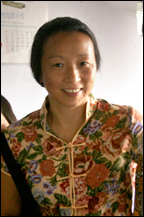

Joshua Beckman was born in New Haven, Connecticut. He is the author of six books, including Take It (Wave Books, 2009), Shake and two collaborations with Matthew Rohrer: Nice Hat. Thanks. and Adventures While Preaching the Gospel of Beauty. He is an editor at Wave Books and has translated numerous works of poetry and prose, including Poker by Tomaz Salamun, which was a finalist for the PEN America Poetry in Translation Award. He is also the recipient of numerous other awards, including a NYFA fellowship and a Pushcart Prize. He lives in Seattle and New York. For more information on this author, go to: http://www.wavepoetry.com/authors/31-...
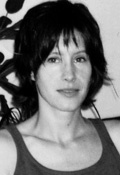

Mary Ruefle is an American poet and essayist. The daughter of a military officer, Ruefle was born outside Pittsburgh in 1952, but spent her early life traveling around the U.S. and Europe. She graduated from Bennington College in 1974 with a degree in Literature. Ruefle's work has been widely published in literary journals. She has received a National Endowment for the Arts fellowship, a Whiting Writer's Award, a Guggenheim fellowship, and an Award in Literature from the American Academy of Arts and Letters. Ruefle currently lives in New England. She teaches in the MFA in Writing program at Vermont College and is visiting faculty with the University of Iowa Writers' Workshop. For more information on this author, go to: http://www.wavepoetry.com/authors/50-...
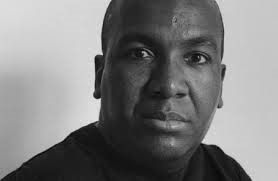
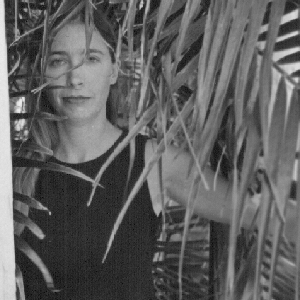
Juliana Spahr (born 1969) is an American poet, critic, and editor. She is the recipient of the 2009 Hardison Poetry Prize awarded by the Folger Shakespeare Library to honor a U.S. poet whose art and teaching demonstrate great imagination and daring. Both Spahr's critical and scholarly studies, i.e., Everybody’s Autonomy: Connective Reading and Collective Identity (2001), and her poetry have shown Spahr's commitment to fostering a "value of reading" as a communal, democratic, open process. Her work therefore "distinguishes itself because she writes poems for which her critical work calls." In addition to teaching and writing poetry, Spahr is also an active editor. Spahr received the National Poetry Series Award for her first collection of poetry, Response (1996). (from Wikipedia)
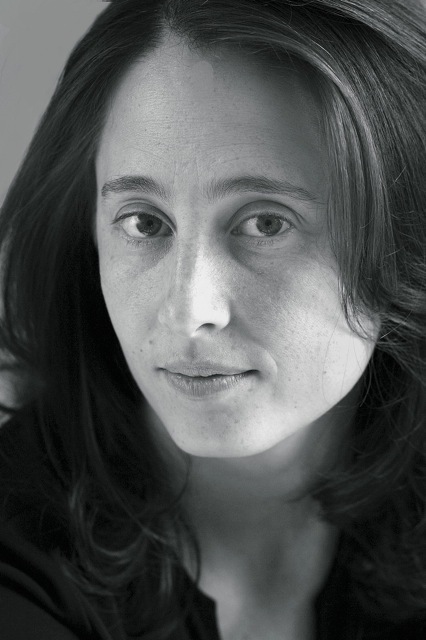
Rachel Zucker is the author of Museum of Accidents (Wave Books, 2009), which was nominated for a National Book Critics Circle Award. She is also the author of The Bad Wife Handbook (Wesleyan University, 2007), The Last Clear Narrative (Wesleyan University, 2004), Eating in the Underworld (Wesleyan University, 2003), and Annunciation (The Center for Book Arts, 2002), as well as the co-editor (with Arielle Greenberg) of Starting Today: 100 Poems for Obama's First 100 Days and Women Poets on Mentorship: Efforts and Affections (both from the University of Iowa Press). A graduate of Yale and the Iowa Writer's Workshop, Zucker has taught at several institutions, including NYU and Yale. She currently lives in NYC with her husband and three sons, and is a certified labor doula. For more information on this author, go to: http://www.wavepoetry.com/authors/63-...

James Vincent Tate was born in Kansas City, Missouri. He taught creative writing at the University of California, Berkeley and Columbia University, and at the University of Massachusetts, Amherst, where he worked since 1971. He was a member of the poetry faculty at the MFA Program for Poets & Writers, along with Dara Wier and Peter Gizzi. Dudley Fitts selected Tate's first book of poems, The Lost Pilot (1967) for the Yale Series of Younger Poets while Tate was still a student at the University of Iowa Writers' Workshop; Fitts praised Tate's writing for its "natural grace." Despite the early praise he received Tate alienated some of his fans in the seventies with a series of poetry collections that grew more and more strange. He published two books of prose, Dreams of a Robot Dancing Bee (2001) and The Route as Briefed (1999). His awards include a National Institute of Arts and Letters Award, the Wallace Stevens Award, a Pulitzer Prize in poetry, a National Book Award, and fellowships from the Guggenheim Foundation and the National Endowment for the Arts. He was also a Chancellor of the Academy of American Poets. Tate's writing style is difficult to describe, but has been identified with the postmodernist and neo-surrealist movements. He has been known to play with phrases culled from news items, history, anecdotes, or common speech; later cutting, pasting, and assembling such divergent material into tightly woven compositions that reveal bizarre and surreal insights into the absurdity of human nature.


